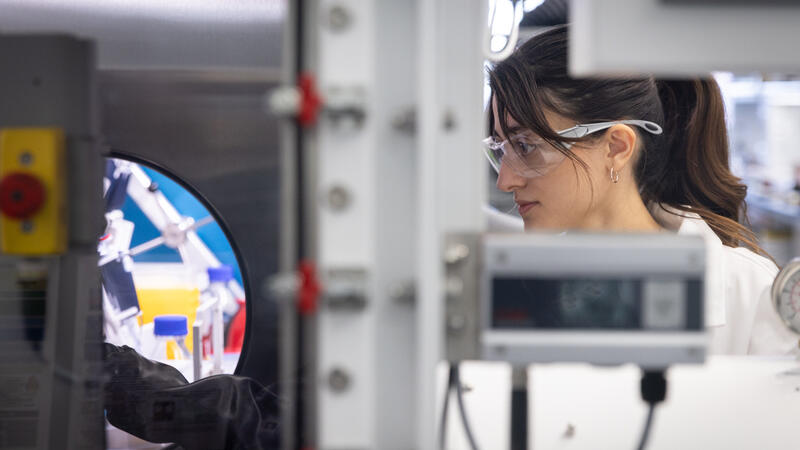News
Autonomous lab accelerates discoveries to harness power of microbes
Anne-Sophie Bohrer, Great Lakes Bioenergy Research Center (GLBRC) postdoctoral research associate at Michigan State University (MSU), specializes in resilience. Originally from France, Bohrer moved to the United States after her PhD to study plant metabolism at MSU and now researches the metabolic makeup of switchgrass with GLBRC.
Acclaimed biologist E.O. Wilson dubbed invertebrates as “the little things that run the world.” More than 95% of all animal species are invertebrates, with species adapted to thrive in the driest of deserts to the ocean depths. Despite their hidden lifestyle, they can have potentially large impacts on key ecosystem processes important for reducing further climate warming.
Four Great Lakes Bioenergy Research Center researchers have been named to Clarivate Analytics’ 2019 list of “Highly Cited Researchers.” Those named include James Dumesic, UW–Madison professor of chemical and biological engineering; John Ralph, UW–Madison professor of biochemistry; G.
We might not notice them, but the crops farmers grow are protected by scores of tiny invertebrate bodyguards. Naturally occurring arthropods like spiders and lady beetles patrol crop fields looking for insects to eat. These natural enemies keep pests under control, making it easier to grow the crops we depend on.
Thousands of years ago, as humans tamed wild animals and plants into livestock and crops, their penchant for intoxication also led them to unwittingly domesticate a hidden workhorse of civilization: yeast.
The microbiome offers nearly limitless potential for research in areas from wastewater treatment to pharmaceutical drug production. University of Wisconsin-Madison engineers have published a paper encouraging colleagues to adopt common engineering methods to further microbiome research and development.
Stems, leaves, flowers, and fruits make up the biggest chunk of potential living space for microbes in the environment, but ecologists still don’t know a lot about how the microorganisms that reside there establish and maintain themselves over the course of a growing season.
The University of Wisconsin-Madison effort to launch a shared cryo-electron microscopy facility for the bioscience community is gathering momentum, with two new faculty hires and key technology investments this summer.





